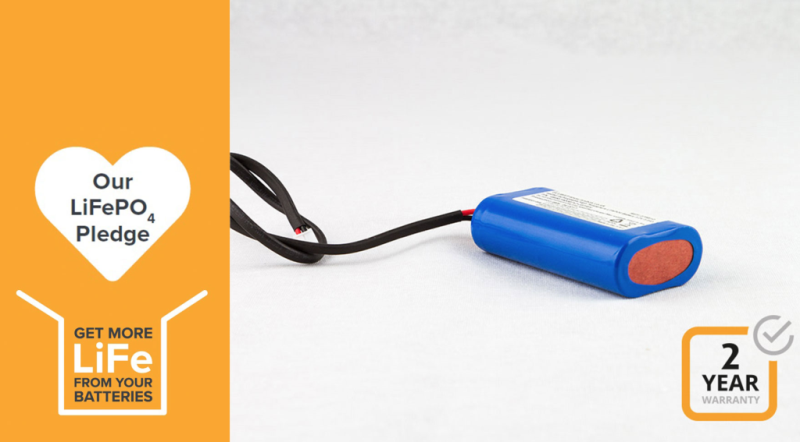 Luxbox has announced its LiFePO4 pledge: by 2020, it will no longer use NiCd batteries for emergency lighting. Instead, it will use LiFePO4 batteries.
Luxbox has announced its LiFePO4 pledge: by 2020, it will no longer use NiCd batteries for emergency lighting. Instead, it will use LiFePO4 batteries.
Why choose LiFePO4?
LiFePO4 batteries offer many technical, economic and environmental advantages. Not only do they save energy and last longer, but due to their higher energy density, packaging and transport costs are drastically reduced.
Thanks to the pulse charging technology, energy consumption is reduced by up to 95 per cent and battery temperature can be reduced by around 5°C, which greatly extends life expectancy. But perhaps the most important factor for our planet is the elimination of the toxic heavy metal, cadmium.
We pledge to switch to LiFePO4 by 2020 because it’s the right thing to do. Will you join us?
Superior performance
LiFePO4 batteries offer an operational life up to double that of NiCd and NiMH batteries. Unlike NiCd and NiMH cells, which can be damaged by excessive charging and discharging, LiFePO4 batteries benefit from being cycled and don’t suffer from ‘memory effect’ in the same way that NiCd can. They also have better resilience to high and low temperatures (0-60°C acceptable range).
Ultimate reliability
LiFePO4 cells are produced in a highly automated climate-controlled environment, ensuring consistently high quality levels. Conversely, NiCd batteries are almost all handmade in Chinese factories without environmental control. This makes it much more difficult to guarantee consistency across batches, never mind the obvious health and safety concerns.
Kinder to the environment
 LiFePO4 batteries avoid use of the toxic heavy metal, cadmium. Cadmium use is generally decreasing, and it is specifically listed in the European Restriction of Hazardous Substances. The pulse charging method used by LiFePO4 cells – a result of their extremely low rate of self-discharge – means significant energy savings can be made.
LiFePO4 batteries avoid use of the toxic heavy metal, cadmium. Cadmium use is generally decreasing, and it is specifically listed in the European Restriction of Hazardous Substances. The pulse charging method used by LiFePO4 cells – a result of their extremely low rate of self-discharge – means significant energy savings can be made.
It’s the future…
NiCd technology could disappear altogether within the next few years. There are increasing difficulties in China with finding areas where cadmium can be processed. So it makes sense to switch to LiFePO4 now.
Safety
Not all types of lithium battery are safe for emergency lighting. LiFePO4 batteries use phosphate as the cathode material, alongside other added protection, avoiding the risk of combustion from such things as a short circuit or overcharging, that plagued earlier versions of lithium batteries. Even mechanical damage such as piercing the battery casing will not result in combustion or toxic chemical leakage.
For more information, please visit www.luxbox.co.uk

